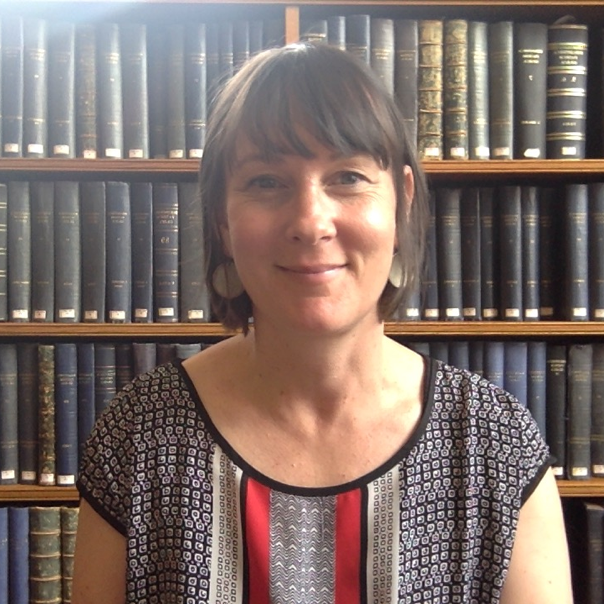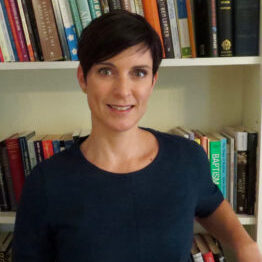Episode Transcript
[00:00:05] Speaker A: You're listening to by the well, a lectionary based podcast for preachers recorded on the land of the Wurundjeri people.
Hi, I'm Sally Douglas.
[00:00:18] Speaker B: And I'm Monica Melanchthon.
[00:00:20] Speaker A: And this week we're looking at the readings for Pentecost 10, which is Sunday, August 17th. They're Isaiah 51:7, Psalm 80, verses 1 to 2, and then 8, 19, Hebrews 11:29, right over to chapter 12, verse 2 and Luke 12:49, 56. Monica, can you tell us about Isaiah?
[00:00:43] Speaker B: Okay.
You know, the book of Isaiah is of course in Christian circles is sometimes called the fifth Gospel because there are so many texts within it that seem to allude to the coming of the Messiah, which is Jesus Christ, which is of course a Christian interpretation of the book.
But having said that, a little bit about who Isaiah was, you know, and this is society in which he lived.
Isaiah prophesied during the 8th century, and it was a time which had undergone great socio economic and political changes, particularly since the introduction of monarchy and in pre monarchic times, the tribal confederation, you know, the times of the tribal confederation, the majority of the population of was peasants living off their land in egalitarian communities under the leadership of elders.
And these tried to guarantee the welfare of everyone, especially the weaker members of society, such as the widows and the orphans and the strangers.
Yahwism's Judah, which was Judah's traditional religion, permeated, inspired and directed every aspect of people's lives. And all this changed with monarchy. And during the time of Isaiah, the economy was controlled by the ruling classes and their wealthy associates.
The result was an accumulation of wealth by the elite at the expense of the poor, ordinary citizens who were impoverished through this unjust and exploitative policies of the powerful. The system was based on a Canaanite model of the city state where Baalism favored a social system in which the ruling classes controlled the economy and even if it meant oppressing the rest of the population.
[00:02:33] Speaker A: And it was seen as divinely approved.
[00:02:37] Speaker B: So divinely in the Canaanite city system. Yes. So it was basically, of course, this went against Yahweh principles, but basically it was a time of implicit rejection of God's absolute sovereignty over human affairs in favor of a reliance on human resources, such as the political, economic and military structures of the state, including foreign alliances.
And so this of course, you know, is termed as the sin of pride that was at the root of all the disorders of Israelite society that Isaiah was condemning through his prophecies of judgment. Social, you Know, on social inequalities, injustice and militarism. And of course, we are talking about Isaiah 1:39, the prophet Isaiah of Jerusalem. Because Isaiah 2 and 3 are different people.
[00:03:29] Speaker A: That's right. So just in case people aren't aware of that, it's commonly thought by scholars that is not one. We're not seeing the work of one author or even focus on book, but there are three books within Isaiah.
[00:03:39] Speaker B: Yeah. So this is with reference to approximately chapters 1 to 39, although you will see some sections that belong elsewhere. Yeah, but, yeah, this is. So this is the prophet of Jerusalem, Isaiah of Jerusalem, who is speaking. And so, you know, here, chapter five, Isaiah is. You know, the book as a whole has some really striking passages. You're all familiar with them, and this is one of them.
And it is identified as a love song because it begins with. With the words, let me sing for my beloved, my love song. Or it's sometimes termed as the song of the vineyard. You know, so.
So here, you know, with love poems in ancient West Asia, a common venue for epic conjugal meetings is the vineyard. Right.
You see this in the Song of Songs. Yes, yes, as well. So.
So therefore, you know, the vineyard is used, you know, also euphemistically for a woman's sexuality in Song of Songs, but we will not discuss that.
So this lyrical narrative of love is between the vineyard and the one who tends to the vineyards Every.
Every need.
And so we are first given a sort of a laundry list of actions that the farmer has done on behalf of the vineyard.
[00:04:59] Speaker A: It's quite tender too, isn't it? I've done this work. I've dug and prepared.
[00:05:03] Speaker B: Yeah, he's prepared the land, you know, cleared it of all that was unneeded, and then plants and watches the vineyard, you know, the plant grow.
And what is it?
Bear. Yeah, you know, it bears.
It does not bear sweet fruit, as expected, but rather bitter fruit or wild grapes. Yeah.
So.
So therefore, in what way is this a love song? Because it. It becomes a song of unfaithfulness.
[00:05:35] Speaker A: It does.
[00:05:35] Speaker B: Yeah, yeah, yeah. So. So that song ends with not love, but.
But rather anger and frustration because the farmer is going to dismantle the vineyard, remove the hedges and allow it to be devoured, break down the wall so it can be trampled down, make it a waste, not prune or hoe it. So it will be overgrown with thorns and thistles, and the farmer will command that the rain not fall upon it.
And then later on in the same text, the farmer is identified and the Farmer is none other than Yah, the Lord of hosts. And the vineyard is the land house of Israel, of people of Judah.
[00:06:19] Speaker A: Yeah. And it's so striking. That bit expected justice and sore bloodshed, righteousness, and heard a cry. It's so clear in the text. This is about what have you done?
[00:06:28] Speaker B: Yeah, yeah. And as I've. I think I've mentioned this elsewhere perhaps, but the word cry here is. Is refers to the cry of the oppressed. It's a special word in Hebrew that is used to refer to. So it's the poor, the women, the marginalized, the widows.
This is the cry that, you know, that is coming out of this vineyard. So this is the context of the text.
[00:06:51] Speaker A: You know, I remember when I studied Isaiah being so struck by how central this theme is throughout the whole book, this cry for the justice. And it's so interesting that we seem to miss that in the church over centuries, that the centrality of God's dreamings for justice and mercy for the vulnerable and the marginalized.
[00:07:10] Speaker B: Yeah. So the song is first of all a commentary on us, if we are the vineyard or like Israel and Judah, you know, so it's not an indictment against one individual. Yes, it's an.
It's a parable that is. That is targeting all people, you know, who have been found to be unfaithful or who have not lived up to the expectations of the farmer, namely God. And so instead of responding to God's grace and mercy and. And interventions in its history with praise and thanks and live lives of love, these people are instead, like wild grapes, bitter, sour, not doing the good that they are meant to do, particularly for. For the marginalized in community.
[00:07:55] Speaker A: It has that sense, doesn't it, in of Jewish prophecy not being about predicting the future, but rather about trying to wake the people up to what God is yearning for in the now.
[00:08:04] Speaker B: Yeah, yeah.
But at the same time, I think it's a commentary on the farmer as well.
It says something about what the farmer has done, what the farmer expects to be the outcome of his or her hard work and labor.
And so if we are the farmers today, how would we respond to.
To an experience like that? We put in all the work and the crop fails. So in a sense, I guess this text will speak a lot to farmers amidst us. They would know the frustration and the grief that is being expressed here by the divine.
So while we are the vineyard, we are also the farmers in the sense we are co creators with God and our vineyards, our institutions, our churches reflect our leadership and our fruits. You Know, so there is a very, very sharp message for those of us in positions of pastoral care, in leadership, in decision making, that we have a responsibility, you know.
Yeah, I hope people are able to make the connection.
[00:09:22] Speaker A: Yeah, absolutely. And I think it's. When we're coming to these texts, well, a couple of things strike me. One is both God's active participation in that metaphor of tilling the land and preparing it, but also there is still choice. People are choosing. People still have choice about whether they respond to that cultivation or whether they ignore it. And I think that's a pretty important theme for us to continue to explore. The other thing that can be tricky with these readings in our political context right now is because of what is happening in our global village in the Holy Land with Israel and Gaza. I think we need to be really careful that we don't read these texts.
[00:09:58] Speaker B: As.
[00:10:00] Speaker A: As being able to be quickly retrofitted into a contemporary context.
[00:10:04] Speaker B: Yeah, yeah, yeah.
I think just one other short thing that I would like to say in relation to this passage is just the, the, the. The metaphor of vegetation, you know, in Isaiah, it's quite, quite popular.
[00:10:20] Speaker A: Yeah, yeah.
[00:10:20] Speaker B: But in this particular passage as well, you know, for those of us who are wanting to pay some attention to ecological issues, we need to pay attention, you know, give att to the vegetation and how vegetation is used to depict, you know, wickedness and evilness also flourish, flourishing in goodness.
[00:10:43] Speaker A: Yeah, yeah, yeah, yeah. We just wanted to share from the World Council of Churches a recent document statement that's come out just because we know that ministers are wrestling with and la preachers about how to. What to address, if to address how to address questions of Israel, particularly when the readings are coming up with this kind of text. The World Council of Churches Central Committee brought out a statement in late July talking about the Holy Land and Gaza. And I'll just read a little bit of it and it's been adopted by the assembly of the Uniting Church as well. We recognize a clear distinction between the Jewish people, our siblings in faith, and the acts of the government of Israel. And we reaffirm that the World Council of Churches stands firm against any kind of racism, including anti Semitism, anti Arab racism and Islamophobia.
However, the unbearable suffering inflicted on the people of Gaza and the escalating violence and oppression in the west bank and in Jerusalem compel the global fellowship of churches to speak with clarity, urgency and commitment to the principles of justice under international law and ethics. I just feel like it speaks powerfully into this reading from Isaiah.
[00:11:51] Speaker B: Yeah, yeah. I think, you know, there's a lot to reflect upon.
[00:11:57] Speaker A: Yeah.
[00:11:58] Speaker B: In this passage, and I hope people have fun with it.
[00:12:10] Speaker A: So Psalm 80.
[00:12:13] Speaker B: Yeah. Another interesting psalm. You know, it's. It is classified as a communal lament because of the phrase come to save us, which is a prayer of the people who seem to be in some sort of a desperate situation calling for help.
So the word save is central to the psalm, and the people here are identifying themselves as sheep needing shepherding or as subjects needing their king.
The. The first.
So, yeah, so verses 8 to 11 affirm trust by recalling God's saving acts in the past.
And here again, you have the reference to God as farmer who takes a vine out of Egypt, clears the ground, plants it, watches it grow.
And then.
And then in 12 to 15, the Psalmist is saying, and why. What happened? You know? Yeah.
You know, I think before we proceed to look at this, to say more about the psalm, I'm always intrigued by what these lectionary creators left out.
[00:13:17] Speaker A: Yes, yes.
[00:13:17] Speaker B: And why is it that they left out these few verses in between? It says, restore us, O God, oh, God, let your face shine that we may be saved.
[00:13:26] Speaker A: Hello. We'd be angry. Yeah, yeah.
[00:13:28] Speaker B: And of course, there. Do you find that there is some frustration and anger being expressed against God, and maybe that's the reason why they left it.
[00:13:36] Speaker A: Which is a shame, because I think if we took the psalm seriously in our prayer lives, we'd be so much more liberated being able to say to God, where are you, God? Because that's what they say. We can say that.
[00:13:45] Speaker B: Yeah, yeah.
And there are crucial questions, you know, in those passages, that passage that has been left out, it's how long will you be angry, Monica?
[00:13:56] Speaker A: I agree. I agree.
I think maybe part of the problem in Christian context is that we don't understand that the Psalms. We don't seriously understand that the psalms are prayers. So it doesn't necessarily reflect God's views about the situation. It reflects what these people were feeling about the situation. And sometimes we feel that.
[00:14:14] Speaker B: Yeah, yeah, yeah, of course. And. And what the psalm is actually teaching us is it's okay to ask those questions.
[00:14:20] Speaker A: Say it. Say it out loud.
[00:14:21] Speaker B: Say it out loud. Express your anger.
[00:14:23] Speaker A: Exactly.
[00:14:24] Speaker B: And so. And so in verses 8 to 11, you have this recall recalling of what God has done, you know, with the image again, or the metaphor of the vine out of Egypt.
And then in verses 14 to 19, the request for help continues, plus a complaint and a curse against the enemies who have mistreated Israel.
But I think the Significant part of the psalm is, yes, come save us. But also these questions, how much longer and why?
Very, very significant questions.
[00:14:57] Speaker A: Absolutely.
[00:14:58] Speaker B: Where the psalmist is or the community that is praying is unable to understand, you know, the devastation they see around them or their own experience. And I picture again, you know, at the moment with Gaza in the minds of everyone who watches the news.
I'm sure these questions are being asked day in and day out by mothers and fathers and people who have no, living in tents, you know, how much longer and why.
[00:15:28] Speaker A: And to know that expressing that isn't a lack of faith, it's part of faith.
[00:15:32] Speaker B: Yeah, yeah. But I think what is problematic about the psalm is that there is no answer.
You know, it's one of the few psalms that you find that you have to live in the mystery of not knowing.
[00:15:45] Speaker A: Yeah.
[00:15:46] Speaker B: And. And so.
And so, yeah, I think we, we. We may not be in that situation, but we can still ask why. Why, you know, change is not happening fast enough.
[00:15:58] Speaker A: That's right.
[00:15:59] Speaker B: So the. Yeah. So I think the psalm speaks to us today quite powerfully.
[00:16:04] Speaker A: Yeah.
[00:16:05] Speaker B: Inter. Particularly in light of these, of these.
[00:16:08] Speaker A: Questions and that sometimes we can stay with the questions because there isn't a quick answer.
[00:16:12] Speaker B: Yeah. But I think it's also important to say that despite the lack of psalmist, continues to remain in faith, in relationship with God, and, you know, ends with I will praise you continually.
[00:16:25] Speaker A: Yeah. So despite everything.
[00:16:27] Speaker B: Everything.
[00:16:28] Speaker A: Yeah, absolutely.
So we're going to have just a little look at Hebrews now. I know that Hebrews is. Well, actually, I think some people love it and some people really don't like it. And it's interesting. It had a murky place in the canon. It wasn't always clear that it would make it into the canon. So that's an interesting thing to know. We don't know who the author is.
Don't know the timing. I personally think it was written after the destruction of the temple, but others have other views, I think more scholars think probably after.
It's deeply grounded in Jewish texts.
It's understanding of who the God of Jesus Christ is, grounded in Old Testament in traditions and. And we see this today in this list of all these faithful people.
[00:17:19] Speaker B: Yeah, it's rather an eclectic list of heroes of the faith.
[00:17:23] Speaker A: Yes. And has a kind of rhythmic sense about it.
So there are those who are like military leaders and there are prophets and the persecuted. It's a curious list of gathering together.
I think one of my concerns in the past, and probably still now actually about Hebrews and the use of Hebrews in Christian context is. It can be very easily read as supersessionist, as. As though.
As though its message is about. In Jesus, everything about Jewish tradition is replaced some kind of supersessionist. It's. And so I really want to underscore that I actually don't think that's what's going on in the text.
It requires us to do deeper work and it requires us to engage with the worldview of the author or the authors. William Loiter is really great about this area. If people want to do some more reading. Uniting Church, Australian scholar.
And he talks about the backdrop being the Greek philosophical world in which there was the notion. So not Jewish, not Christian, the Greek philosophical world in which there was a notion of there being ideals in heaven like the true, the real, and that we only ever have kind of photocopies here to use it. Casual language. And so. So in that understanding for these authors, and we don't have to agree with this, this is their context. For them, the argument is that everything that was before Jesus was the photocopy version of the real. So the law was in place because we couldn't have the fullness here. The temple was in place, the earthly temple was in place because the heavenly wasn't here. But that somehow in Jesus the heavenly has come to earth. The letter of the Hebrews begins with a hymn fragment which is really similar to the hymn fragment in Colossians, where Jesus is imaged as the invisible God. So images Jesus, Sophia is the one who is from heaven, the divine one who comes to earth. And that somehow in that now the real is among us. So it's that kind of backdrop sense. And so in this list of all these faithful Jewish people, I don't think it's saying, and they are all not as good as us.
It's rather. It's saying they were doing all this faithful, even though it wasn't this. The fullness of time hadn't happened yet, if that makes sense. And so then I quite like the imagery at the end of this reading about the cloud of witnesses around. It has a sense of the Olympic theater, like the person running in and everyone crying with laugh, you know, cheering, cheering them on and with joy as they do the final lap. Now, I quite like that image, Monica, of our forebears, you know, the communion of saints cheering us on as we're struggling around for the last race.
[00:20:04] Speaker B: Thank you for that, Sally. I mean, for me, I think what this passage, which I have not done a lot of work on Hebrews in particular, I Mean, the book as a whole.
What stands out for me is the mention of all these characters from the Old Testament. And I think the author is wanting to remind people of the connections that exist between the Christian community and the past and what those individuals, you know, offer to us in. In terms of faith or example and so on and so forth. And I was really intrigued by the fact that, you know, the faith of Rahab is mentioned, you know, because she's a transgressive figure.
[00:20:46] Speaker A: That's right.
[00:20:47] Speaker B: Within the Hebrew tradition.
And.
And then the Canaanite priest Melchizedek, you know, establishes the order of Christ. Yeah. Priesthood that you have mentioned in chapter five.
[00:21:00] Speaker A: Yeah.
[00:21:01] Speaker B: Verse six. So in a sense, there is a. There's a reference to marginal characters. Yes. And outsiders.
[00:21:07] Speaker A: Outsiders, yeah.
[00:21:08] Speaker B: And so for me, I think I'm encouraged by this integration of both outsiders and insiders.
Yeah.
[00:21:16] Speaker A: And it's interesting in one clement, which is a letter from the church in Rome to the church in Corinth, and there's quite a few times when Hebrews. The letters of Hebrews and one clement overlap in some ways that they're different. It also celebrates Rahab and calls her a prophet. So there's. I would argue, that would suggest that different communities are talking about this or thinking about this. It's very interesting.
[00:21:40] Speaker B: I mean, there were other women of examples he could have picked up. Right.
So it's interesting that he, you know, he picks a Canaanite prostitute.
[00:21:49] Speaker A: Yeah. Fascinating.
[00:21:50] Speaker B: Yeah. And it's. Yeah, it is fascinating. Yeah.
[00:21:53] Speaker A: Yeah. And so I don't know. For preachers, I don't think we talk about the communion of saints enough, personally. So, I mean, to think about who are the. Like, it might be lovely to invite corporations, think about who are the people of faith, whether they're from their families or whether it's from history, who they would like to imagine cheering them along, you know?
[00:22:10] Speaker B: Yeah, yeah, yeah.
[00:22:15] Speaker A: Okay. Luke 12.
[00:22:17] Speaker B: No.
[00:22:21] Speaker A: So this is where we put down all those songs about gentle Jesus, meek and mild.
Because they don't really have a place here.
[00:22:27] Speaker B: No, no. I mean, this Jesus is. Is aggressive.
[00:22:32] Speaker A: It's full on.
[00:22:33] Speaker B: Yeah.
[00:22:33] Speaker A: I have come and I will cause division and there's fire. This is. And I think people might be quite uncomfortable about this.
What I love, though, is it's honest.
[00:22:46] Speaker B: Yep.
[00:22:46] Speaker A: So this is a leader who's saying, this is gonna be costly if you go this way with me. It's actually. There's gonna be family breakdowns. It's not the leader who says, follow me and you'll Become popular or follow me and every day will be awesome. Or follow me and you'll be rich. It reminds me a little bit of Mark's Gospel where Jesus talks about the costliness of following as well.
And I think it's talking practically about here and now, like, if you do this, there will be consequences.
[00:23:14] Speaker B: And I think for me, I think, you know, you know, Jesus, do you think I've come to bring peace? No, I've rather division. Yeah. You know, and, and I guess Jesus is saying, you people pride yourselves on being able to predict the weather, but you, you can't see that. You're not able to read the signs around you. Yeah. You know, so there's something wrong. So here is Jesus, you know, saying that Jesus was baptized, you know, both by water and the fire. And, and this meant cleansing the earth of all its purity, because water and fire are agents of cleansing. And so I guess in my mind I'm thinking that Jesus, through Jesus's work, is going to mix up gender and role divisions, overturn hierarchies, break down holiness, purity, boundaries. And so, you know, everything that is symbolic within the culture is going to be disrupted. And this disruption will have lethal consequences. You know, so it's a complete breakdown of structures, father against son and vice versa against daughter. Vice versa. And, and so in a way, Jesus seems to saying, why aren't you seeing what is happening?
[00:24:30] Speaker A: That's right.
And, and as. So there's. I totally agree with you about those categories and, and would add to that wealth as well, because in Luke's gospel, Jesus is so clear about the wealthy giving up their wealth. Like that's going to cause division in families. If, if someone's saying, well, actually I'm going to give away the inheritance, that was going to come to you. And we already see some of the division with a few weeks ago, the conversation Mary and Martha have in Luke's gospel about, well, who, who does have to do what. Yeah. So this eruption of expectations, like family and societal expectations.
[00:25:02] Speaker B: But I think in, in if you look at it a little more deeply, I guess for me it's also saying that all of this needs to be done. Yeah. This breaking down of, you know, of all this. Divisions need to be created or structures have to be dismantled because deforming or defamation. Is that the right word? Yeah. Is an essential prerequisite to new formation.
[00:25:28] Speaker A: Yeah. So being undone and remade.
[00:25:30] Speaker B: Yeah, yeah. So the Hebrew Bible stresses the making or the unmaking character of formation in terms of deformation.
So for a new society to be formed, all Existing structures need to be looked at again, evaluated and broken down, perhaps, you know, and so contributing to a fresh start.
[00:25:52] Speaker A: Yeah, yeah, absolutely. And I think we see, at least for this author, the author of Luke Acts, their dream of that in Acts 2, when they have all given things away and they're living in community, like, that's a radical break from the culture. To be living with people who were strangers, as though they were family and to be sharing your things in common. Like, this is a.
We don't know how much it actually happened. But for the author of Luke, they present it as being really emphatic. So.
[00:26:18] Speaker B: Yeah. And for today, I think what is important is this is what the farmer of Isaiah 5 is doing.
[00:26:24] Speaker A: Yes.
[00:26:24] Speaker B: You know, breaking down the walls.
So the dismantling of the vineyard, depriving it of all forms of protection, nutrients and possibilities of growth. And so in a way, he chokes it to death. Which is not very nice to hear. No, but so that new life will emerge. I mean, I think we can think of the bushfire season.
[00:26:45] Speaker A: Absolutely.
[00:26:46] Speaker B: And the fire. Yes, yeah.
[00:26:48] Speaker A: And indigenous fire practices.
[00:26:49] Speaker B: Yeah.
[00:26:50] Speaker A: So burning away. What needs to be burned away?
[00:26:52] Speaker B: So I think in a way, the text is required. What the text is calling for us to do is to break down, to. To choke and starve every notion. Yeah. Attitude or tendency that might exist within each of us. Yeah. The.
That contributes to the building up of walls.
[00:27:09] Speaker A: That's right. That is not of God.
[00:27:11] Speaker B: Yeah, yeah. Separate the dehumanized and subjugate.
[00:27:15] Speaker A: And I think within this reading, in terms of thinking about preaching, perhaps a couple of things come to mind. One is, I'd be wanting probably to. To just make clear this isn't permission to be awful to your family.
[00:27:27] Speaker B: No.
[00:27:28] Speaker A: Because you could read it that way. See, Jesus came caught across vision, so I could, you know. But also, I think it's an invitation to be less afraid of conflict. I think, particularly in my observation. I'd like to hear your observation, but my observation of Anglo Celtic culture in Australia is we're very nervous to have the disagree in face to face. People might have a conversation about, I call it the car park assassination. So they talk about what happened in the meeting in the car park and how unhappy they are, but they don't have the hard, difficult disagreement, you know, whether it's the presbytery meeting or the church council or whatever it is.
So the invitation to be able to disagree. Well, to try and do that. And. Because even though Jesus says he comes to bring division throughout the rest of the gospel, Jesus isn't being retaliating towards people or smashing them with violence or anything. Like, he's strong and clear and not polite, but he's not violent.
[00:28:19] Speaker B: Yeah.
[00:28:19] Speaker A: So how do we do that? How do we disagree strongly but kindly?
[00:28:24] Speaker B: Yeah, we don't disagree for the sake of. Disagree.
[00:28:26] Speaker A: That's right.
[00:28:27] Speaker B: We disagree because. Because whatever it is that is being discussed goes against the. The. The expectations of the gospel or, you know, justice, you know, so all of us have sort of, you know, some in what you would call unnegotiable.
[00:28:46] Speaker A: Values.
[00:28:47] Speaker B: Values, you know, and if those values are contradicted in the way we live or the structures present themselves, then it is our duty, you know, to be moved by our faith in those values to.
To. To bring them to fruition somehow. And that would mean disagreeing. That would mean dismantling. Yes. Certain structures. And I think that is what the text is saying. Of course, it's not an easy task. No, it is. It is risky. Yeah.
[00:29:12] Speaker A: You might become unpopular. Absolutely.
[00:29:14] Speaker B: So.
But I think what the. What the. What the text is saying is transformation, whether it's of the. Of the vineyard begins with each of us as individual, you know, as individuals. Yeah. And.
And therefore Isaiah and this book is. Luke is leaving us with the question, what kind of fruit are we produc?
Are we producing the fruits of the kingdom? You know, is it righteousness or is it justice or bloodshed and oppression? Yeah. Are we speaking up for justice? Are we leading people to know God's love in the things that we do and say?
[00:29:51] Speaker A: Yeah.
[00:29:51] Speaker B: And what it is. What is it that is stopping us from. From doing that, you know, what is hindering us? Yeah, I think. Yeah. So I think Isaiah and Luke, you know, sort of bookending these two. Yeah. These. These passages for. For today are very, very pertinent, raise pertinent questions.
[00:30:08] Speaker A: They really do. And the call beyond niceness and politeness into fierce compassion.
[00:30:13] Speaker B: Yeah.
[00:30:14] Speaker A: Thank you.
[00:30:14] Speaker B: Thank you.
[00:30:17] Speaker A: By the well is brought to you by Pilgrim Theological College and the Uniting Church in Australia.
It's produced by Adrian Jackson. Thanks for listening.





